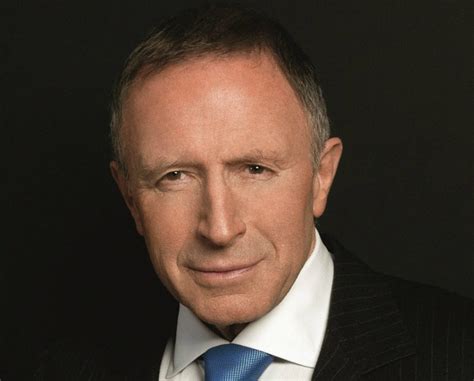A Quote by Milton Friedman
What most people really object to when they object to a free market is that it is so hard for them to shape it to their own will. The market gives people what the people want instead of what other people think they ought to want. At the bottom of many criticisms of the market economy is really lack of belief in freedom itself.
Related Quotes
I think a lot of people are involved in art because of the fashion of art and the conversation. It gives them a certain sophistication, something to speak about. But art is, if it's conceptual, really about understanding the concept. And if it's beautiful, it's about seeing the beauty. It's gone much further than that now. There's too much commercialism attached to art. If the market cracks one day big-time, you'll frighten so many people away who will never come back. Because they don't really feel for art. People who buy art should want it because they love it, they want to enjoy it.
What people "want" is a function of what they learn is available. If you wish to sell something, you'd better understand that you can't give people what they want in the market today, because what they want today is what they can already get. You have to discover what they really want, and find some way to give that physical shape.
My father always said 'There's no free lunch.' My father was right. There's no free lunch and there's no free market. The market is rigged, the market is always rigged, and the rigging is in favour of the people who run the market. That's what the market is. It's a bent casino. The house always wins.
How can I set free anyone who doesn't have the guts to stand up alone and declare his own freedom? I think it's a lie - people claim they want to be free - everybody insists that freedom is what they want the most, the most sacred and precious thing a man can possess. But that's bullshit! People are terrified to be set free - they hold on to their chains. They fight anyone who tries to break those chains. It's their securityHow can they expect me or anyone else to set them free if they don't really want to be free?
I don't want to fool people. If I wanted to do that, I would be working with virtual reality. I want to operate on the other level, the other end of the illusion spectrum. I want to create the worst possible illusions so it doesn't really fool people, but instead give people a measure of their own belief. It makes them aware of how much they need to be fooled in order to understand the world around them.
An old market had stood there until I'd been about six years old, when the authorities had renamed it the Olde Market, destroyed it, and built a new market devoted to selling T-shirts and other objects with pictures of the old market. Meanwhile, the people who had operated the little stalls in the old market had gone elsewhere and set up a thing on the edge of town that was now called the New Market even though it was actually the old market.
The underlying strategy of the Fed is to tell people, "Do you want your money to lose value in the bank, or do you want to put it in the stock market?" They're trying to push money into the stock market, into hedge funds, to temporarily bid up prices. Then, all of a sudden, the Fed can raise interest rates, let the stock market prices collapse and the people will lose even more in the stock market than they would have by the negative interest rates in the bank. So it's a pro-Wall Street financial engineering gimmick.
There are three important principles to Graham's approach. [The first is to look at stocks as fractional shares of a business, which] gives you an entirely different view than most people who are in the market. [The second principle is the margin-of-safety concept, which] gives you the competitive advantage. [The third is having a true investor's attitude toward the stock market, which] if you have that attitude, you start out ahead of 99 percent of all the people who are operating in the stock market - it's an enormous advantage.


































